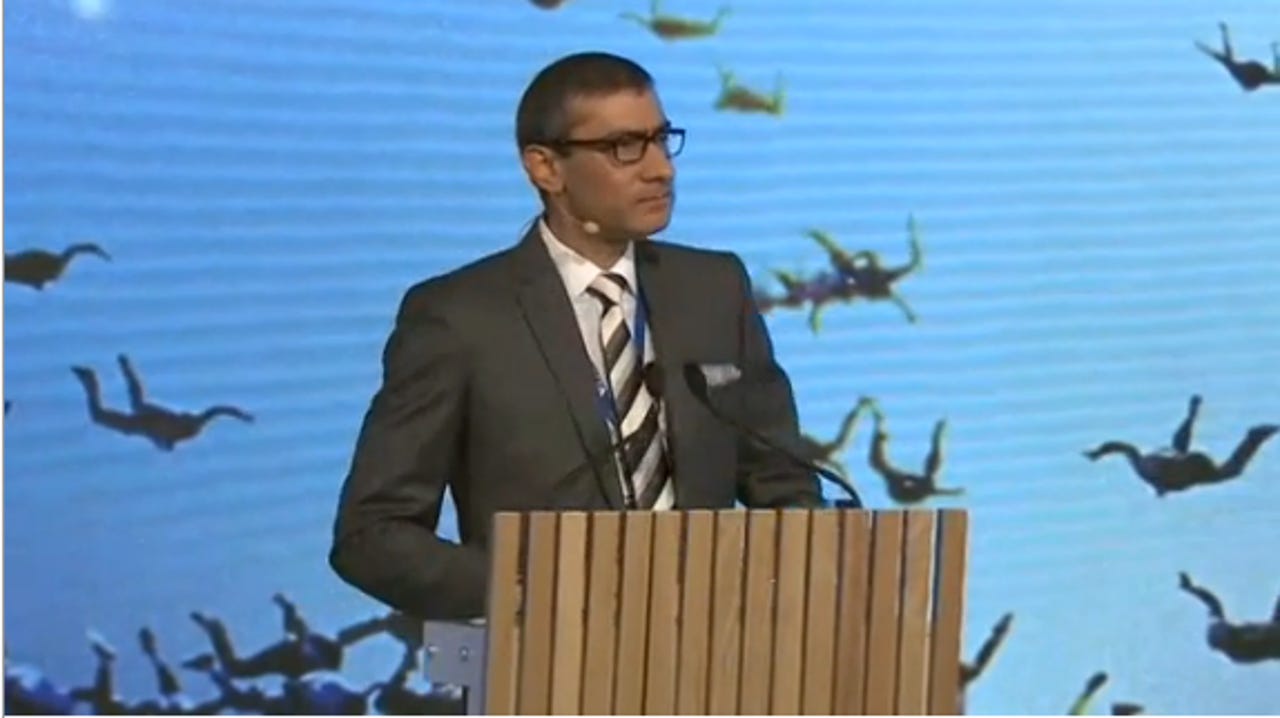Nokia says no return to handsets as CEO lays out its plans for the future


At its analyst meeting today in London, Nokia CEO Rajeev Suri detailed where the company's focus will be for the next few years for its Networks unit, the Here mapping subsidiary, and its Technologies business.
Referring to the last few years as a period of "difficult change", Suri noted that Nokia has "gone from a long period of decline to our first period of year on year growth since 2011".
The company is now predicting growth for all three business units. The charge will be led by Networks, which Suri said will grow "slightly faster than the market", currently dominated by Nokia, Huawei, and Ericsson. Despite a declining number of players in the networking space, Suri predicts no easing of competition, with smaller players becoming more aggressive and IT companies increasing looking to enter the market.
Spending on younger network technologies such as 4G is offsetting the declines in older equivalents for Networks, according to Suri. 4G is likely to make up the backbone of infrastructure spend for the foreseeable future, despite predictions that pre-standard 5G networks will be rolled out in as little as four years.
"Any change of technology never quite comes as fast as people think," said Suri. "4G will coexist with 5G for many, many years, adding both coverage and connectivity." It will account for 80 percent of infrastructure spending for years to come, the CEO added.
The company is looking to the rise of Internet of Things to help bolster Networks, predicting there will be 50 billion connected objects by 2025. "We are exploring big opportunities in the Internet of Things, which could include analytics and machine-to-machine connectivity platforms," Suri said.
Other nascent technologies on Nokia's networking radar include 5G, cloud radio access networks, intelligent antennas, and small cells. "I always said when the market was there [for small cells], we would be there. Now is that time," Suri said.
And, like many a hardware company before it, Nokia is hoping to turnaround the slump in revenue from its services business too, including systems integration, network planning and optimisation, and managed services.
Suri said the lessons learnt from Networks in the last few years — the use of Kaizen and lean, improving operational efficiency — will be applied to Here, which the company is hoping to see beginning to grow after a period of flat sales and break-even results.
Nokia is looking to "build our businesses into interesting near adjacencies," according to its CEO. For Here, that will mean adding fleet and smart asset management products onto its existing enterprise automotive products. "Enterprise is a small business for us today, but one that is showing good growth and long term potential," Suri told analysts on Friday.
In the consumer mapping space, Nokia won't be taking on main competitor Google directly but instead relying on partners such as Yahoo, Microsoft, and Amazon to take its offerings to end users through a B2B2C strategy.
For its patents and licensing business, known as Technologies, Suri was more cautious, saying the company needed to explore further before it could say with certainty what would be the outcome and timing of both new technology R&D and licensing deals.
For Technologies, licensing will remain a priority, with Nokia working on upping royalty payments as existing licensing deals expire. And, having struck patent licensing deals with many of the big handset manufacturers, Suri revealed that it would be moving on to opening discussions with mid and low-tier device companies, as well as non-phone related hardware businesses, including those making set-top boxes and digital cameras. It will also be looking to milk the parts of its patent portfolio it has not historically thought to monetise.
Suri also used the capital markets day to put an end to rumours that, having sold its devices and services business to Microsoft earlier this year, Nokia was looking to return to handset manufacturing. "We are not looking to a direct consumer return to handsets per se," he said, but added that the Nokia "brand will return to the consumer world" through licensing deals in the longer term.
"The Nokia brand is still extremely powerful and we see considerable interest in licensing. We will pursue it... in a thoughtful and considered way," he said.